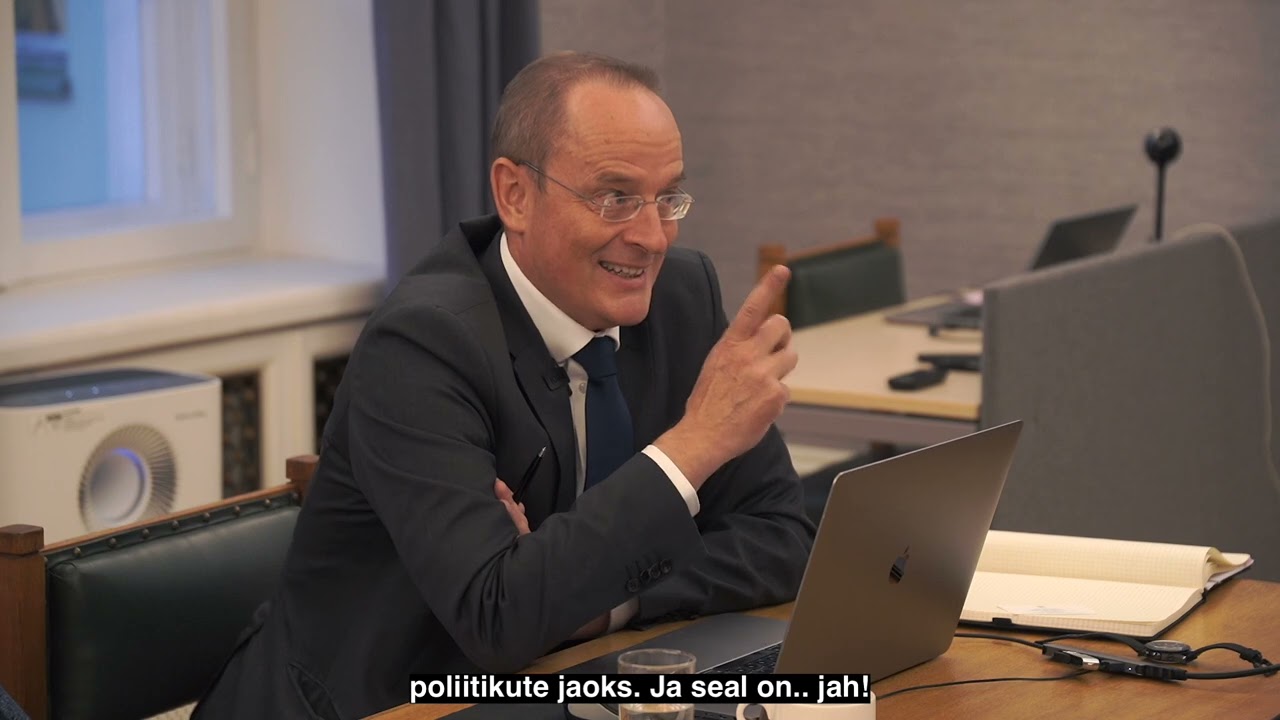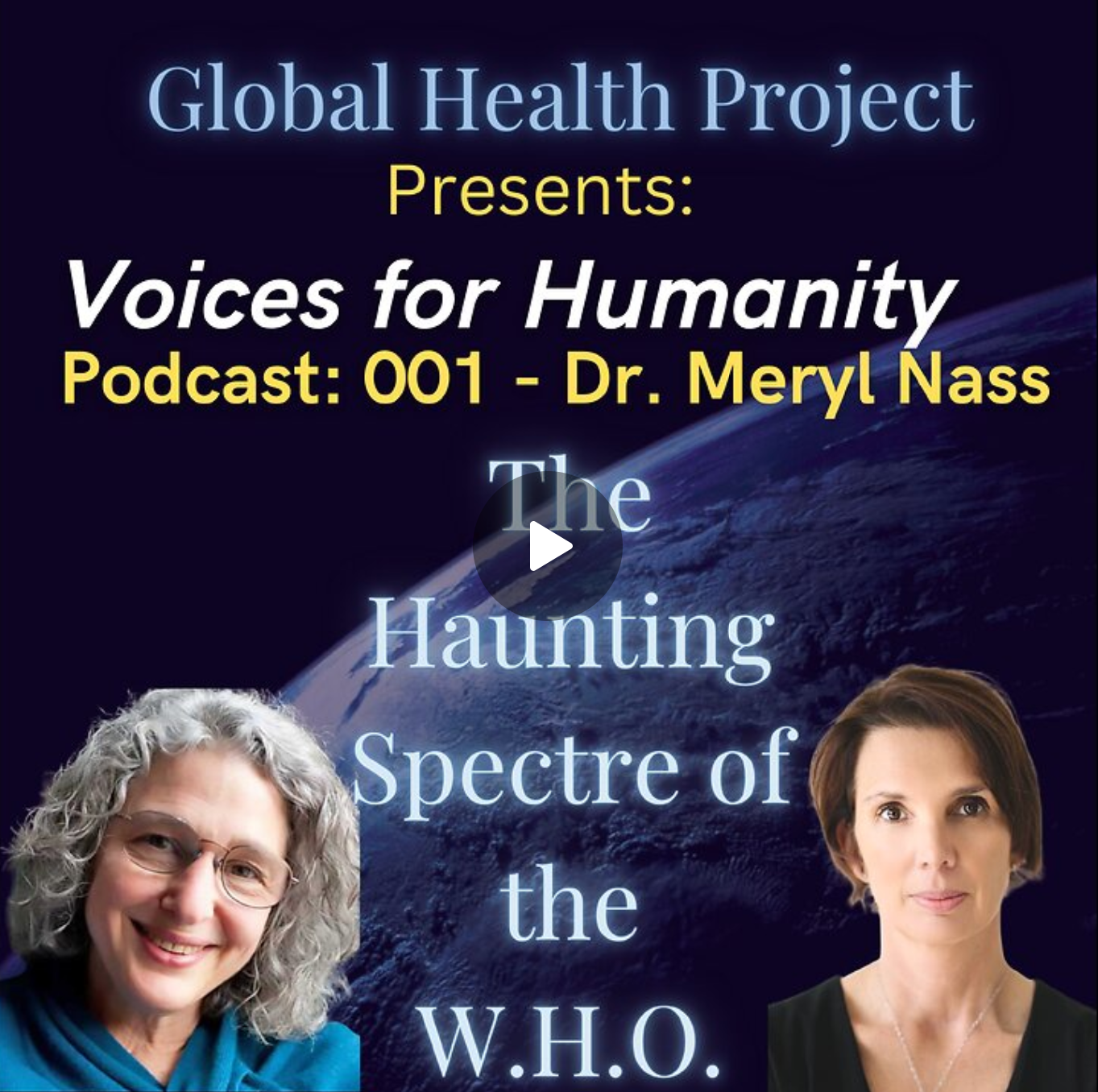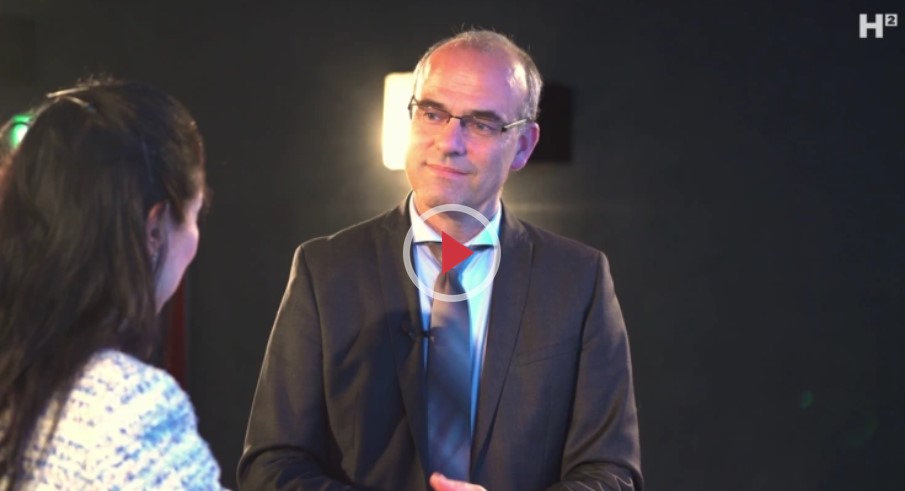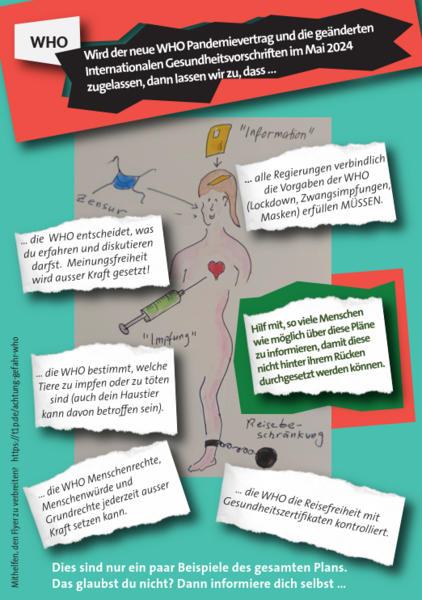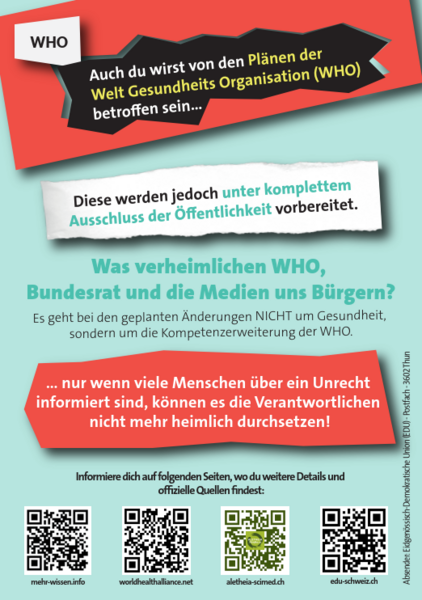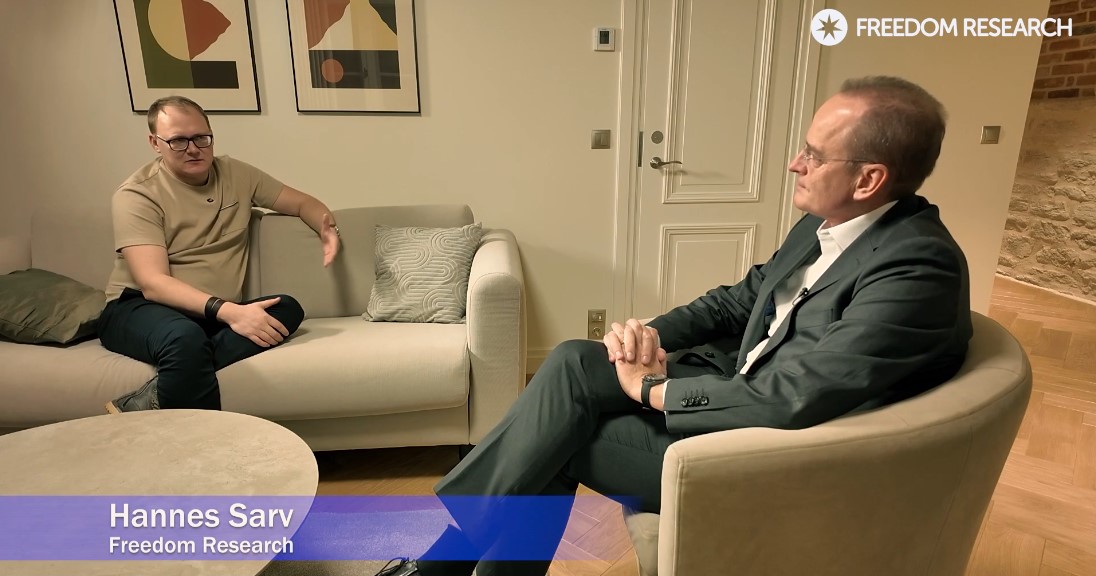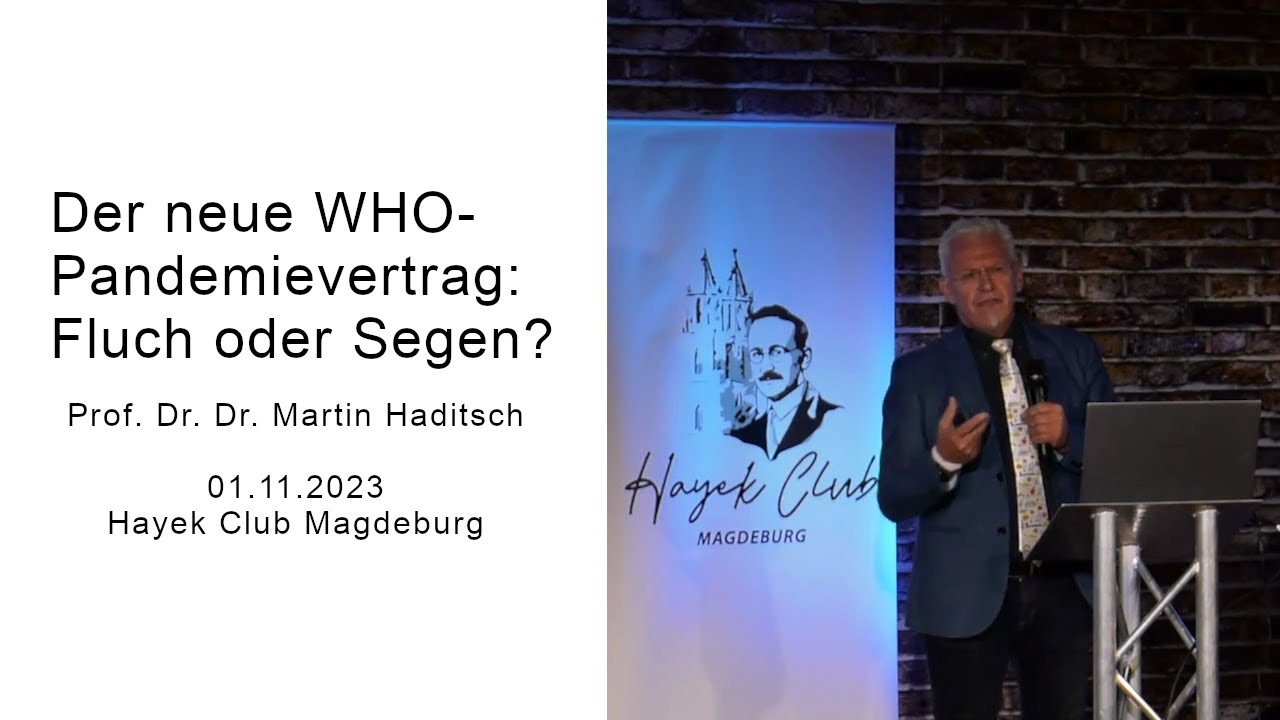15.11.2023, QS24: Kann man den WHO-Pandemie-Vertrag als freiwilligen Verzicht auf Demokratie sehen?
Wir sind das Volk! Wir sind der Staat. Doch was ist, wenn unsere gewählten Politiker einfach die Verantwortung für Entscheidungen aller Art weiter delegieren und dieser Organisation dann auch alle Rechte wie Verfügung, Bestimmung, Bestrafung usw. – abtreten? Und was ist, wenn diese Organisation weder gewählt ist noch interessenskonfliktfrei wäre, sondern sich an den Interessen privaten Personen orientiert?
Haben wir dann noch eine Demokratie? Hat das Volk dann noch die Möglichkeit, seine Regierungsvertreter abzuwählen? Hat der eigene Staat dann noch die Möglichkeit, individuell auf die möglichen Gefahren einer Gesundheitsinvasion durch eine neue Art Mikroben zu reagieren?
Wie weit weg wären wir dann von einer «Weltregierung», die vielleicht viel Gutes bewirkt, aber auch eine grosse Gefahr von Machtmissbrauch darstellt. Wer garantiert uns, dass «die Macht beim Volk» bleibt, wenn wir die Befugnisse an eine private Organisation abtreten?
Zu Gast: Dr. med. Kurt E. Müller, Mitglied QS24 Wissenschafts-Gremium
Moderation: Alexander Glogg
Der AfD-Politiker aus Lindau am Bodensee fragte: “Kann mit der WHO ein Weltregime erreichtet werden, analog zu dem Pandemie-Regime?” Diese Frage wurde von Kranz und Kruse bejaht, zumindest liegt das genau in der Absicht der Weltgesundheitsorganisation. “Klaus Schwab (WEF) ist der geistige Hintergrund dessen, über was wir heute hier reden”, sagte Uwe Kranz, Terrorismus-Experte von Europol, Analytiker und Buchautor.
Lange schon hat sich Kranz der “WHO” verschrieben, das MWGFD-Mitglied referierte dazu auch bereits bei einer Pressekonferenz zur WHO in München.
Fünf Punkte zählte Rechtsanwalt Philipp Kruse auf, die die Gefährlichkeit der neuen Vertragsgestaltung deutlich machen, und von denen die letzten beiden wohl die gravierendsten sind. Diese “Punkte” sollen 2024 in den “neuen” zwei Vertragswerken der WHO manifestiert werden:
- Punkt 1: Das Ermessen des WHO-Generalsekretärs soll erweitert werden.
- Punkt 2: Der Verbindlichkeitscharakter der WHO soll verstärkt werden.
- Punkt 3: Ein Unfehlbarkeitsprivileg soll medial und informativ geschaffen werden.
- Punkt 4: Es gibt praktisch keinen Kontrollmechanismus (Qualitätskontrolle) mehr.
- Punkt 5: Durch eine neue Rechtsverbindlichkeit wären die Menschen de facto ohne Schutz.”
16.11.2023: Hey, Dan: Pandemie-Vertrag
16.11.2023, Dr. Meryl Nass: Why is Everyone Concerned About the WHO?
Zitat: “Over the past two years you’ve probably heard about the attempted WHO power grab. Here’s everything you need to know to understand the status today:
Overview:
-
The build-out of a massive and expensive global biosecurity system is underway, allegedly to improve our preparedness for future pandemics or biological terrorism. In aid of this agenda two documents are being prepared through the WHO: a broad series of amendments to the existing International Health Regulations (2005) (IHR) and a proposed, entirely new pandemic treaty.
-
A Pandemic Fund a.k.a. financial intermediary fund to aid preparedness worldwide has been established by the World Bank and WHO.
-
Multiple names have been used for the new treaty as new drafts are produced, such as: Pandemic Treaty, WHO CA+, Bureau Text, Pandemic Accord, and Pandemic Agreement.
-
Negotiations for these documents are being held in secret. The latest available draft of the IHR amendments is from February 6th, 2023.
-
The latest Pandemic Treaty draft is from October 30th, 2023.
-
Both the amendments and treaty are on a deadline to be considered for adoption at the 77th annual World Health Assembly meeting in May 2024.
-
WHO’s principal attorney Steven Solomon has announced that he crafted a legal fig leaf to avoid making the draft amendments public by January 2024, as required by the WHO Constitution.”
21.11.2023: RA Phillipp Kruse: “Über die WHO-Verträge” in Estland
Hier meine Präsentation vom 21. Nov. 2023 vor Mitgliedern des Parlamentes in Estland zum Thema WHO-Verträge.
On 21st of November 2023, I was invited to Estonia, for a workshop with some Members of Parliament to explain the significant threat for our democracies that we have to expect from WHO’s new pandemic agreements.
23.11.2023: Stop the WHO Power Grab
The WHO Power Grab Must Be Stopped – Our Silence Is Our Consent
“Unless we put medical freedom into the Constitution, the time will come when medicine will organise into an undercover dictatorship to restrict the art of healing to one class of Men and deny equal privileges to others; the Constitution of the Republic should make a Special privilege for medical freedom as well as religious freedom”
Benjamin Rush
Founding Father of the United States and signatory to the U.S. Declaration of Independence
Unelected, unaccountable and unknown bureaucrats are secretly stealing our rights and freedoms under the cover of pandemic prevention, preparedness and response. Our status as sovereign individual human beings will be changed, forever, without the knowledge or consent of the people. Proposals are being negotiated that will give The World Health Organisation (WHO) an unprecedented, unwarranted and dangerous power over all of humanity. In short, a worldwide medical dictatorship is underway.
To defeat this threat, Save Our Rights is working with the UK Medical Freedom Alliance to halt the alarming proposals to be incorporated in the Amendments to the 2005 International Health Regulations (IHR) and the proposed World Health Organisation CA+ / Pandemic Agreement (Treaty/Accord). We will launch in January 2024 but in the meantime, we have one campaign we need your help with now:
WHAT: Reject the Amendment to Article 59 of The IHR (2005) that was adopted at the 76th WHA in May 2022. The time period for Member States to reject these amendments ends on 1st December 2023.
WHEN: NOW – 1st December
On 31 May 2022, the delegates of the WHO World Health Assembly formally adopted 5 new amendments to the International Health Regulations (2005). These amendments come into force, under international law, for all member states after 24 months (31 May 2024) UNLESS they actively opt out of any of them within 18 months (1st December 2023) invoking Article 61 “If a State notifies the Director-General of its rejection of these Regulations or of an amendment thereto within the applicable period provided in paragraph 1 or 1bis of Article 59, these Regulations or the amendment concerned shall not enter into force with respect to that State…”
Of the 5 new Amendments, there is one which we are concerned about that will severely compromise the ability of the public to lobby politicians to reject future amendments, by reducing the time available. This is an Amendment to Article 59, which significantly reduces the time allowed for a country’s leadership to reject IHR Amendments adopted at future World Health Assemblies, from 18 months to 10 months.
We are a few days away from the deadline for the UK Government to reject this worrying Amendment. Failure to do so will mean that we are legally bound by this new, tighter timeframe for rejecting future amendments. Silence equals consent.
This will be problematic in the very near future, as there are around 300 Amendments to the International Health Regulations which are currently being negotiated and finalised.
We need you to help us lobby the Health Secretary and your MP to put pressure on the UK Government to reject the Amendment to Article 59, which reduces the time we will have available to reject future Amendments, BEFORE 1st December 2023.
Use the one simple form below to write to both at once:
Dear Health Secretary,
Re: Rejecting Amendment to Article 59 of the International Health Regulations Adopted in May 2022
I am writing to express concern over the amendments to the International Health Regulations (2005) adopted by the WHO World Health Assembly on 31 May 2022. These amendments are set to become effective for all member states 24 months post-adoption (31 May 2024), unless a member state opts out within 18 months (1st December 2023), as outlined in Article 61.
The Amendment to Article 59 raises significant concerns. It drastically shortens the timeframe for member states to reject future IHR Amendments from 18 to 10 months and reduces the implementation period from 24 months to 12 months. This reduction becomes even more critical in light of the over 300 amendments proposed for the next World Health Assembly in May 2024. Although the final details of these amendments are not yet fully disclosed, preliminary discussions suggest that they could profoundly impact national health policies and sovereignty.
Additionally, the Working Group for amendments to the International Health Regulations (WGIHR) has reported difficulties in meeting the January 2024 deadline to submit the final draft of these amendments. This delay may violate Article 55 of the IHR, which mandates that Member States receive proposed amendment texts at least four months before the Health Assembly, thereby potentially compromising the ability of Member States to perform a thorough and informed review.
The recent positions of Estonia, New Zealand, and Slovakia are particularly noteworthy in this regard. Estonia’s Parliament, on 22nd November, formally rejected the current IHR amendments, as well as the proposed future amendments and the international pandemic treaty, with 92 of the 101 Riigikogu members voting against them. This decision was grounded in constitutional principles and demonstrates a commitment to maintaining national legislative integrity.
New Zealand, through its coalition agreements announced on 24th November, reserved its position against adopting these amendments by 1st December 2023, pending a ‘National Interest Test’. This step highlights the importance of ensuring that international health regulations align with national interests and priorities.
Furthermore, President Fico of Slovakia, in a speech at the SMER party conference on 17th November, declared that the Slovakian constitution would require the consent of the National Council of the Slovak Republic for such amendments. He affirmed that he would not support measures that strengthen the WHO at the expense of national sovereignty.
These examples underscore a growing trend among nations to exercise caution and thoroughness in adopting international health regulations. The UK, by adopting a similar approach, would not only affirm its commitment to careful evaluation of such amendments but also emphasize the need to retain an 18-month timeframe for consideration, particularly in light of the potential implications of the upcoming amendments.
As Secretary of State for Health and Social Care and UK Chief Delegate to the World Health Assembly, I urge you to reject the Amendment to Article 59. This action is crucial to ensure the UK retains the necessary time to adequately assess the impact of these and future amendments on our national health policy and legislative framework. Please ensure this decision is communicated to the WHO Director-General by 1st December 2023.
Yours sincerely,
[Name]
Skip to content
Dear [MP Name],
Re: Rejecting Amendment to Article 59 of the International Health Regulations Adopted in May 2022
I am writing to you as my MP and representative in Parliament to ask you to urgently write to Victoria Atkins in her capacity as the Secretary of State for Health and Social Care, on my behalf, concerning the information below.
As I am sure you are aware that on 31st May 2022 at the WHO World Health Assembly amendments to the International Health Regulations (2005) were adopted. These amendments are set to come into force for all member states 24 months post-adoption (31 May 2024), unless a member state opts out within 18 months (1st December 2023) as provided by Article 61.
The Amendment to Article 59 raises significant concerns. It drastically shortens the timeframe for member states to reject future IHR Amendments from 18 to 10 months and reduces the implementation period from 24 months to 12 months. This reduction becomes even more critical in light of the over 300 amendments proposed for the next World Health Assembly in May 2024. Although the final details of these amendments are not yet fully disclosed, preliminary discussions suggest that they could profoundly impact national health policies and sovereignty.
Additionally, the Working Group for amendments to the International Health Regulations (WGIHR) has reported difficulties in meeting the January 2024 deadline to submit the final draft of these amendments. This delay may violate Article 55 of the IHR, which mandates that Member States receive proposed amendment texts at least four months before the Health Assembly, thereby potentially compromising the ability of Member States to perform a thorough and informed review.
The recent positions of Estonia, New Zealand, and Slovakia are particularly noteworthy in this regard. Estonia’s Parliament, on 22nd November, formally rejected the current IHR amendments, as well as the proposed future amendments and the international pandemic treaty, with 92 of the 101 Riigikogu members voting against them. This decision was grounded in constitutional principles and demonstrates a commitment to maintaining national legislative integrity.
New Zealand, through its coalition agreements announced on 24th November, reserved its position against adopting these amendments by 1st December 2023, pending a ‘National Interest Test’. This step highlights the importance of ensuring that international health regulations align with national interests and priorities.
Furthermore, President Fico of Slovakia, in a speech at the SMER party conference on 17th November, declared that the Slovakian constitution would require the consent of the National Council of the Slovak Republic for such amendments. He affirmed that he would not support measures that strengthen the WHO at the expense of national sovereignty.
These examples underscore a growing trend among nations to exercise caution and thoroughness in adopting international health regulations. The UK, by adopting a similar approach, would not only affirm its commitment to careful evaluation of such amendments but also emphasize the need to retain an 18-month timeframe for consideration, particularly in light of the potential implications of the upcoming amendments.
The UK Secretary of State for Health and Social Care, Victoria Atkins, has the authority to reject any adopted IHR amendment to release the UK from our legal obligation to be bound by them. Please write to Victoria Atkins on my behalf to ask her to urgently inform the WHO Director-General that the UK wishes to reject the Amendment to Article 59, reducing the time to reject future amendments from 18 months to 10 months and from 24 months to 12 months for any implementation. This simple action must be performed by 1st December 2023.
Yours sincerely,
[Name]
24.11.2023, stattzeitung: Gibt es einen Fehler in WHO-Abstimmung?
von Stef Manzini
Internationales Anwaltsteam könnte jetzt vielleicht eine wichtige WHO-Abstimmung kippen. Rechtsanwalt Philipp Kruse meint gravierende Mängel im Abstimmungsmodus zu erkennen. Ärztin Dr. Maria Hubmer-Mogg erkennt jetzt die Wichtigkeit politisch zu handeln. Rechtswissenschaftlerin Dr. Beate Pfeil erkennt aktuell einen totalen Verfassungsbruch. Exklusives stattzeitungs-Interview mit drei Experten, die erkannt haben, wie gefährlich die Weltorganisation für Gesundheit (WHO) in Wirklichkeit ist.
Sprengkraft liegt in diesem Interview, da internationale Juristen wie Rechtsanwalt Philipp Kruse jetzt möglicherweise eine “Smoking Gun” gegen die WHO in Händen halten. Die Abstimmung im Mai 2022 bezüglich der Widerspruchsfristen und dem Inkrafttreten der Gesundheitsvorschriften weist gravierende Mängel auf, so Kruse.
Nach einer Videodokumentation kommt der WHO-Experte zu dem Urteil, dass die betreffende Abstimmung so fehlerhaft sein könnte, dass sie höchstwahrscheinlich für nichtig erklärt werden müsste. Hoch brisant ist, diese Abstimmung betrifft genau jene wichtigen Fristen, die ab Mai 2024 den Nationalstaaten deutlich weniger Zeit dafür lassen sollen, Widerspruch gegen von der WHO verhängte Maßnahmen einzulegen.
Die Ärztin aus Graz, Dr. Maria Hubmer-Mogg, zeigt als Resilienz-Coach, wie man auch ohne schädliche “Gen-Spikung”, genannt “Corona-Schutz-Impfung”, gut durch den Winter kommt, und wie sie für ihre Ziele, Gesundheit, Menschenrechte und Freiheit demnächst auch im Europa-Parlament eintreten möchte.
Von einem totalen Verfassungsbruch, den wir aktuell erleben, spricht die Rechtswissenschaftlerin Dr. Beate Sibylle Pfeil, hinsichtlich der “Ewigkeitsgarantie”, in der im Grundgesetz die Würde des Menschen fest zementiert ist. Die Expertin für Menschen- und Minderheitenrechte erklärt außerdem, wie und warum sie als Beraterin für den Europarat geschasst wurde.
Lassen Sie sich überraschen, von einem an Brisanz kaum zu übertreffenden Interview, das thematisch eine Punktlandung zur WHO-Veranstaltung von stattzeitung.org in Überlingen ist. Mit sehr viel Herzenswärme und einem Überraschungsgast auf vier Pfoten haben wir dieses Gespräch am Rande der unserer Veranstaltung am gestrigen Donnerstag aufgenommen.
25.11.2023, Exposé: Estonia notifies WHO that it rejects the Pandemic Treaty and amendments to International Health Regulations
Zitat: “On 22 November, 11 Members of the Estonian Parliament wrote a letter to the World Health Organisation (“WHO”) to reject the proposed international agreement on pandemic prevention preparedness and response – also known as the “Pandemic Treaty” or “Pandemic Accord”. The letter also rejects the amendments to the International Health Regulations (2005) (“IHR”).
Last month we published an article explaining that in May 2022 the World Health Assembly (“WHA”) quietly agreed to reduce the period during which nations have to opt out of future amendments to the International Health Regulations. For nations to retain the longer 18-month period previously allowed for nations to opt-out, countries need to send WHO a short note that they are opting out of the amendments decided by the WHA in 2022 before 1 December 2023.
The letter from the Estonian MPs is dated 22 November 2023, 8 days before the 1 December deadline. The MPs haven’t simply opted out of the amendments decided by the WHA in 2022, they have gone much further and rejected both the proposed Pandemic Treaty and the IHR amendments in their entirety as well as additional funding to WHO.
Kalle Grünthal, one of the MPs who signed the letter, broke the news on Facebook. The letter begins:
Hereby, the Republic of Estonia, based on Article 22 of the Statute of the World Health Organisation, declares that it rejects and does not consent to the international agreement on pandemic prevention, preparedness and response as well as complementary amendments to the International Health Regulations (2005) and to improving the sustainability of WHO funding.
Estonia Said No to the Implementation of Forcing Measures, Kalle Grünthal on Facebook, 23 November 2023
You can read the full letter in the image at the end of this article.”
25.11.2023: Beate Bahner: WHO-PANDEMIE-VERTRAG – Lesung aus ihren neuen Buch
Lesung der bekannten Fachanwältin für Medizinrecht im Anschluß an das 1. AfA-Bürgerforum (Anwälte für Aufklärung e.V.). ein. Das neue Buch soll im Januar 2024 erscheinen.
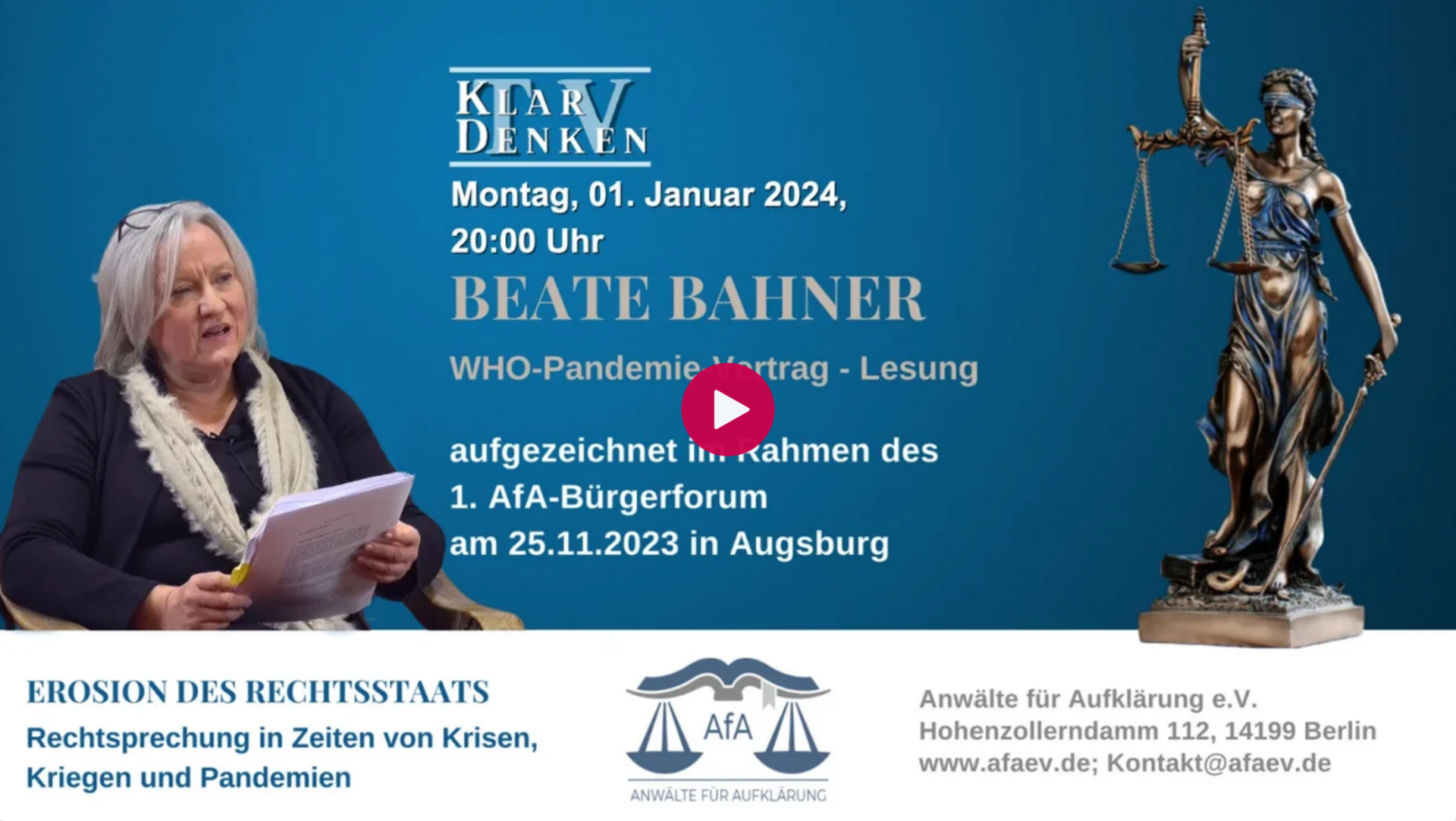
26.11.2023: Decoding the W.H.O. Power Grab
The Haunting Spectre of the W.H.O.
Global Health Project Presents: Voices for Humnity, Episode 1 with Dr. Meryl Nass
175 years ago, Carl Marx wrote, “A spectre is haunting Europe—the spectre of communism.”
It would appear that humanity has returned to those dark times, despite almost 2 centuries of battling and defeating these failed ideologies. But this time it is not a battle for economic equity or class supremacy, but a highly sophisticated attempt to centralize world government under the guise of shared “health”.
Join Dr. Kat Lindley as she interviews Dr. Meryl Nass M.D., a renowned, board-certified internist and biological warfare epidemiologist as they break down this shocking power grab, which if successful, will change the fate of all humanity.
27.11.2023: Schilderdemo in Oschersleben
“NOCH 187 Tage, um die WHO-Diktatur zu VERHINDERN! Widerstand Jetzt!”

03.12.2023, Beate Bahner: China im Pandemiealarm – oder Umsetzung der WHO-Planspiel?
6. Video zur WHO
Die Pandemiepläne der WHO: Kurz und knapp in mehreren Videos erklärt von Beate Bahner Wer mehr über die Planspiele erfahren will, dem empfehle ich zum Einstieg den Vortrag von Paul Schreyer “Pandemie-Planspiele – Vorbereitung einer neuen Ära?”
05.12.2023: WHO-Info-Flyer: Achtung-Gefahr!
Informationsflyer für die gesamte Bevölkerung der Schweiz zum Pandemievertrag mit der WHO (vorgesehene Unterzeichnung Mai 2024).
Zitat: “Auch du wirst von den Plänen der WHO betroffen sein […] Was verheimlichen WHO, Bundesrat und die Medien uns Bürgern? Es geht bei den geplanten Änderungen NICHT um Gesundheit, sondern um die Kompetenzerweiterung der WHO. […] Meinungsfreiheit wird ausser Kraft gesetzt […] Vorgaben verbindlich (Lockdown, Zwangsimpfungen, Masken).
Flyer als pdf: WHO-Info-Flyer – Achtung-Gefahr!
10.12.2023: Schweizer Arzt empfiehlt „Booster“ für das eigene Rückgrat statt WHO-Pandemievertrag
Zitat: “Es ist ein düsteres Bild für die Zukunft, das der Schweizer Arzt Dr. Thomas Binder in einem auf X veröffentlichen Video zeichnet. Darin geht es nicht nur um die Machtstellung der Weltgesundheitsorganisation, die bei Unterzeichnung des Pandemievertrags droht, sondern auch um gefährliche mRNA-Injektionen, die schon bald alle herkömmlichen Impfungen ersetzen könnten. […] In seinem Video warnt Binder auch vor den weitreichenden Folgen eines Pandemievertrages mit der WHO. Sobald die jeweiligen Landesregierungen den Vertrag unterzeichneten, würde die Regierung, das Parlament und letztlich die Bevölkerung jegliche Entscheidungsfreiheit verlieren.„Die einzige sinnvolle, 100 Prozent wirksame und sichere Prävention einer weiteren kriminellen Pandemie ist die sofortige Zerschlagung der WHO in 1.000 Stücke“, so Binder.”
14.12.2023, FREEDOM RESEARCH TV: Lawyer Philipp Kruse on Why We Should Reject the New WHO Treaties
“Swiss lawyer Philipp Kruse has been vocal in his criticism on the new WHO treaties and in this interview, he brings out the exact threats they pose to individual freedoms and democratic society.
Philipp Kruse is an accomplished lawyer who runs his own law firm in Zurich. Having previously concentrated on tax and business law, he has in recent years dealt increasingly with legislation around so-called health issues, defending people’s rights in the face of arbitrary decisions taken by the state in the Covid crisis. He has also closely followed developments at the World Health Organization (WHO) and critically analysed the legal implications of the WHO’s ‘pandemic treaty’ and the International Health Regulations, which are currently being amended.
In an interview with us, he discusses the problems of the WHO, the motives of its financiers, and how these new treaties would empower the organisation in the future.”
27.12.2023: Der neue WHO-Pandemievertrag – Fluch oder Segen? – Prof. Martin Haditsch im Hayek Club Magdeburg
Prof. Dr. Dr. Martin Haditsch ist ausgewiesener Experte und Facharzt für Hygiene und Mikrobiologie, Infektiologie und Tropenmedizin sowie Virologie und Infektions-Epidemiologie. Die Weltgesundheitsorganisation will ein neues Pandemieabkommen mit den Ländern beschließen.
Kritiker des Abkommens mahnen, die WHO würde weitreichende Durchgriffsrechte gegenüber Staaten bekommen. Prof. Dr. Dr. Haditsch beleuchtet den Inhalt des geplanten Pandemieabkommens.
27.12.2023: Vortrag von Beate Bahner zum Thema: WHO-Pandemie-Vertrag
7. Video zur WHO
02.01.2024, tkp: Fahrplan für WHO-Reform im Entscheidungsjahr 2024
Dieses Jahr wird für die WHO-Reform entscheidend. Besonders im ersten Halbjahr gilt es, nach Genf zu blicken. So sieht der Fahrplan aus.
2024 wird ein entscheidendes Jahr für den Pandemievertrag und die Änderungen der Internationalen Gesundheitsvorschriften. Bis zum Mai 2024 bei der Weltgesundheitsversammlung gibt es noch einige entscheidende Termine zu beachten.
300 Änderungen der Internationalen Gesundheitsvorschriften werden derzeit verhandelt. Die Öffentlichkeit ist über den Stand der Verhandlungen nicht im Bilde, da sie geheim geführt werden. So gibt es auch keine aktualisierten oder überarbeiteten Fassungen. Die ursprünglichen Vorschläge wurden von TKP breit diskutiert – etwa hier.
Aktuell kommt die WHO aber immer mehr unter Druck. Per Statut muss das endgültige Papier, das im Mai zur Abstimmung kommt, bis zum 27. Januar 2024 vorlegen. Tatsächlich hat man aber bereits angekündigt, dass man diese Frist nicht einhalten werde. Für James Roguski, der Journalist, der die WHO-Reform sehr engmaschig beobachtet, ein Skandal: „Dies sollte überall in den Nachrichten zu lesen sein, aber praktisch niemand spricht darüber.“
Es bleibt offen, ob überhaupt eine endgültige Fassung bis zur Abstimmung im Mai vorgelegt werden wird. Die nächste Sitzung der Arbeitsgruppe für Änderungen der Internationalen Gesundheitsvorschriften (WGIHR) ist für den 5. bis 9. Februar 2024 angesetzt.
Die aktuelle Version des Pandemievertrags, der bereits mehrmals abgeändert worden ist, ist hier zu finden.”
07.01.2024, transition news: Pandemievertrag: Auch unverbindliche Massnahmen schaffen enormen Druck
Die Diskussion um den geplanten Pandemievertrag und die Änderung der WHO-Gesundheitsvorschriften ist in den Mainstreammedien angekommen. Ein Autorenteam um die Starjournalistin Katharina Fontana hat in einem Artikel in der Neuen Zürcher Zeitung (NZZ) diese Vertragswerke analysiert. Es folgt eine kurze Würdigung und Zusammenfassung dieser Arbeit. […]
Die NZZ kritisiert den Vertrag wegen möglicher Bürokratie, unklarer rechtlicher Verbindlichkeit und Eingriffen in wirtschaftliche Freiheiten. Insbesondere umstritten sind der obligatorische Technologietransfer, die Forderung nach Zugriff auf produzierte Güter und die Kontrolle der Meinungsäusserungsfreiheit.
Die Autoren kommen zum Schluss, dass während der geplante WHO-Pandemievertrag gute Absichten verfolgt, die umfangreichen Bestimmungen zu einer unnötigen Bürokratisierung führen könnten. Lösungsorientierte Ansätze und eine ausgewogene Berücksichtigung der wirtschaftlichen Realitäten fehlten bisher. Es bleibe abzuwarten, wie die Verhandlungen und die finale Abstimmung im Mai 2024 verlaufen werden, so die Autoren.
Was die NZZ leider nur antönt, ist die Möglichkeit von verbindlichen, von der WHO angeordneten nichtpharmazeutischen Massnahmen wie Schliessungen, Ausgangssperren und Impfpflichten.
Es fehlt im Artikel eine Analyse, um welche Massnahmen es sich handeln könnte und ob die WHO solche verbindlich anordnen könnte.
Die Autoren fragen sich hingegen völlig zu Recht, was die «unklare rechtliche Verbindlichkeit» in der Praxis bedeuten könnte, und kommen zum interessanten Schluss, dass auch durch unverbindliche Empfehlungen enormer Druck auf die einzelnen WHO-Mitgliedsländer ausgeübt werden könnte.
17.01.2024, Uncut-News: Tucker deckt auf, wie Pharma „die Experten“ hinters Licht führt – Die Pläne der WHO für dich verstehen
Zitat: Direkt zum Video mit deutschen Untertiteln:
Die Geschichte auf einen Blick
- Viele haben darüber nachgedacht, dass Big Pharma einen perversen Anreiz hat, Krankheiten zu fördern, da sein finanzieller Erfolg davon abhängt. Aber nur wenige verstehen, wie ausgeklügelt ihre Bemühungen zu diesem Zweck sind
- Der amerikanische Podcaster und ehemalige Professor für Evolutionsbiologie, Bret Weinstein, beschreibt die Pharmaindustrie als eine Art Schläger für geistiges Eigentum. Big Pharma patentiert Moleküle, Verbindungen und Technologien und sucht dann nach Krankheiten, gegen die ihre Patente eingesetzt werden können
- Die Pharmaindustrie ist ständig bemüht, ihr geistiges Eigentum als nützlicher und sicherer darzustellen, als es tatsächlich ist, und das medizinische Establishment, Fachzeitschriften, medizinische Gesellschaften, Krankenhäuser und Regierungen davon zu überzeugen, den Menschen Medikamente zu empfehlen, die sie sonst nicht einnehmen würden. Als COVID-19 auftauchte, war die Industrie also mehr als bereit, daraus einen Vorteil zu ziehen
- Die Einführung der mRNA-Plattformtechnologie war für die gesamte COVID-Reaktion von zentraler Bedeutung. Die Technologie hat einen tödlichen Fehler, der ihre Markteinführung unter normalen Umständen verhindern würde. Die COVID-Pandemie ermöglichte es der Pharmaindustrie, dieses Hindernis zu umgehen und diese unglaublich lukrative Technologie einzusetzen
- Durch Änderungen der Internationalen Gesundheitsvorschriften und des Pandemievertrags strebt die Weltgesundheitsorganisation unter dem Deckmantel der öffentlichen Gesundheit die globale Herrschaft und totale Kontrolle über die Massen an
Das Video oben zeigt ein Interview von Tucker Carlson mit dem amerikanischen Podcaster und ehemaligen Professor für Evolutionsbiologie Bret Weinstein. Es wurde ursprünglich am 5. Januar 2024 ausgestrahlt. Darin sprechen sie über die COVID-19-Pandemie, „das Spiel von Big Pharma“, die katastrophalen Auswirkungen der mRNA-Spritzen und den Plan der Weltgesundheitsorganisation für die Zukunft der Menschheit. Ein hervorragendes Interview, das Sie nicht verpassen sollten.”



